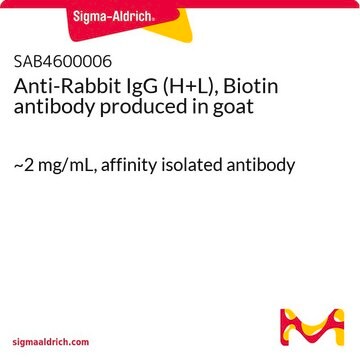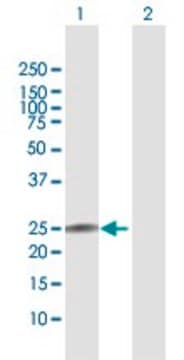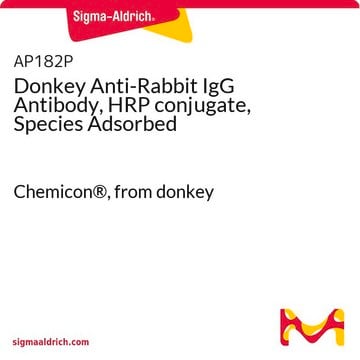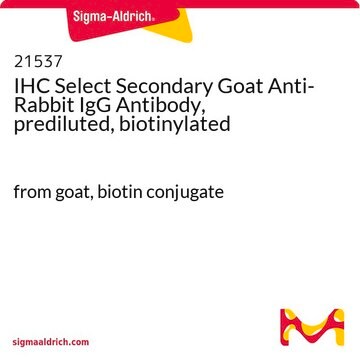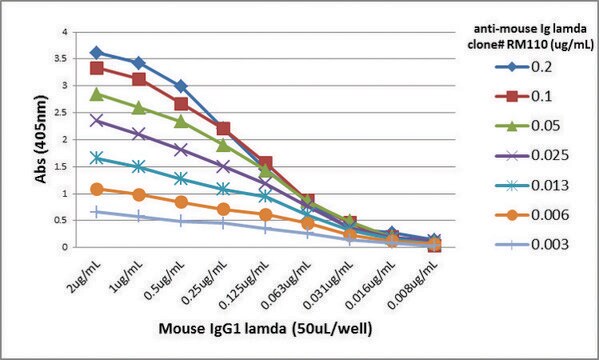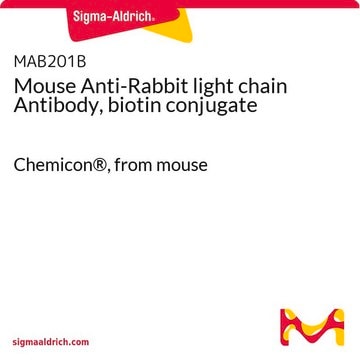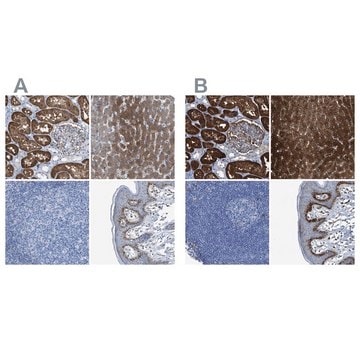Opis ogólny
IgG (immunoglobulin G) antibody is enriched in mother′s milk. IgG contributes to 10−20% of plasma protein and is regarded as one of the most abundant serum protein. It consists of four subclasses : IgG1, IgG2, IgG3 and IgG4. The IgG structure possesses four polypeptide chains containing two identical γ heavy (H) chains and two identical κ or λ light (L) chains of 50kDa and 25kDa respectively. The chains are interlinked with a disulfide bond. Both the L and the H chains consist of a variable domain at the N-terminal. The C-terminal bears′ constant domains: three in H chain with a hinge region and one in the L chain. The variable region of IgG antibody is specific to antigens and is highly conserved.
Specyficzność
Binds all mouse IgGs (minimal cross-reaction with human, bovine, horse, rabbit and swine serum proteins)
Działania biochem./fizjol.
IgG (immunoglobulin G) antibody protects against bacterial, fungal and viral infections. IgG antibody has its function similar to IgM antibody in complement system activation. Maternal IgG is transferred to fetus through the placenta that is vital for immune defense of the neonate against infections. IgG participates in hypersensitivity type II and type III. It helps in opsonization, complement fixation and antibody dependent cell mediated cytotoxicity.
Cechy i korzyści
Evaluate our antibodies with complete peace of mind. If the antibody does not perform in your application, we will issue a full credit or replacement antibody.
Learn more.Postać fizyczna
Supplied in phosphate buffered saline with 0.05% sodium azide, 50% glycerol and 2 mg/mL bovine serum albumin.
Uwaga dotycząca przygotowania
Protect from light.
Informacje prawne
This product is distributed by Sigma-Aldrich Co. under the authorization of Biotium, Inc. This product is covered by one or more US patents and corresponding patent claims outside the US patents or pending applications owned or licensed by Biotium, Inc. including without limitation: 12/334,387; 12/607,915; 12/699,778; 12/850,578; 61/454,484. In consideration of the purchase price paid by the buyer, the buyer is hereby granted a limited, non-exclusive, non-transferable license to use only the purchased amount of the product solely for the buyer′s own internal research in a manner consistent with the accompanying product literature. Except as expressly granted herein, the sale of this product does not grant to or convey upon the buyer any license, expressly, by implication or estoppel, under any patent right or other intellectual property right of Biotium, Inc. Buyer shall not resell or transfer this product to any third party, or use the product for any commercial purposes, including without limitation, any diagnostic, therapeutic or prophylactic uses. This product is for research use only. Any other uses, including diagnostic uses, require a separate license from Biotium, Inc. For information on purchasing a license to use this product for purposes other than research, contact Biotium, Inc., 3159 Corporate Place, Hayward, CA 94545, Tel: (510) 265-1027. Fax: (510) 265-1352. Email: btinfo@biotium.com.
Oświadczenie o zrzeczeniu się odpowiedzialności
Unless otherwise stated in our catalog or other company documentation accompanying the product(s), our products are intended for research use only and are not to be used for any other purpose, which includes but is not limited to, unauthorized commercial uses, in vitro diagnostic uses, ex vivo or in vivo therapeutic uses or any type of consumption or application to humans or animals.
This page may contain text that has been machine translated.
